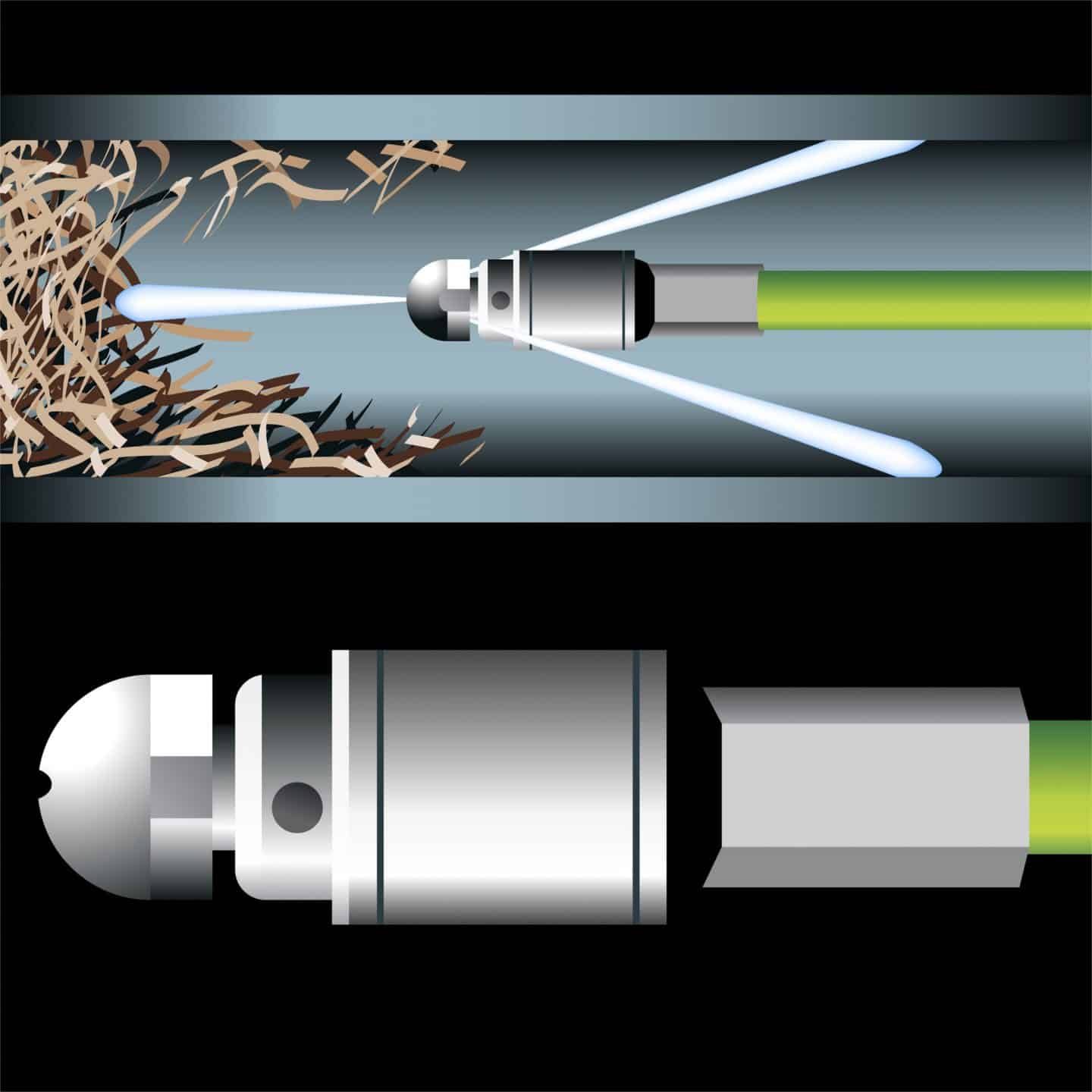
Hydro jetting is one of the most effective and advanced methods for clearing clogged pipes, removing built-up debris, and ensuring your plumbing system functions smoothly. However, many homeowners worry about whether hydro jetting can cause damage to their pipes. While hydro jetting is generally safe when performed by professionals, there are certain conditions that make some pipes more vulnerable. Understanding how hydro jetting works and when it’s appropriate can help you determine if this service is right for your plumbing system.
How Hydro Jetting Works
Hydro jetting involves using a high-pressure hose with specialized nozzles to blast water through your pipes at pressures of up to 4,000 PSI. This powerful water stream effectively breaks apart grease, sludge, mineral deposits, and even tree roots that may be blocking the flow of water. Unlike traditional snaking methods, which simply punch a hole through the blockage, hydro jetting clears the entire diameter of the pipe, restoring optimal water flow.
One major advantage of hydro jetting is its ability to thoroughly clean pipes without the use of harsh chemicals. According to this guide on eco-friendly drain cleaning, chemical-based solutions can weaken pipes over time and cause long-term damage to plumbing systems. Hydro jetting eliminates the need for chemicals while delivering superior results.
Can Hydro Jetting Damage Pipes?
While hydro jetting is a highly effective solution, it can cause damage under certain circumstances. Some factors that determine whether hydro jetting is safe for your plumbing system include:
1. Age of Pipes
Older pipes, particularly those made of clay, cast iron, or fragile materials, may not withstand the force of hydro jetting. If your home was built decades ago and the pipes have never been replaced, a professional inspection is necessary before proceeding with hydro jetting.
2. Pre-existing Pipe Damage
Pipes that are already compromised by cracks, corrosion, or weak joints can suffer additional damage from high-pressure water. If a pipe is already deteriorating, hydro jetting may cause it to break apart entirely. A video camera inspection before hydro jetting can identify weak spots and prevent unnecessary damage.
3. Pipe Material
PVC and newer ABS pipes are generally strong enough to handle hydro jetting. However, older clay or Orangeburg pipes are significantly weaker and more prone to breaking under high pressure. Check this article on different plumbing materials to understand how they withstand various cleaning methods (source).
4. Improper Pressure Settings
Hydro jetting is not a one-size-fits-all solution. If the pressure settings are too high, even durable pipes may suffer damage. Professional plumbers adjust the pressure levels based on pipe material, age, and condition to ensure a safe and effective cleaning.
When is Hydro Jetting the Best Option?
Despite the potential risks, hydro jetting is the preferred method for many plumbing systems due to its ability to completely remove buildup and prevent future clogs. Here are situations where hydro jetting is the best solution:
- Recurring Drain Clogs: If traditional drain snaking or chemical cleaners only provide temporary relief, hydro jetting offers a more permanent fix.
- Tree Root Infiltration: If tree roots have invaded your sewer line, hydro jetting can clear them without requiring extensive excavation.
- Grease and Sludge Buildup: Restaurants and commercial kitchens frequently rely on hydro jetting to maintain their drainage systems.
- Slow Drains Throughout the Home: When multiple drains are slow or backing up, it indicates a blockage deep within the plumbing system. Hydro jetting reaches the source of the problem.
How to Ensure Safe Hydro Jetting
To prevent damage to your pipes, follow these steps before scheduling hydro jetting:
- Schedule a Camera Inspection: A professional plumber will inspect the inside of your pipes to check for cracks, weak joints, or signs of deterioration.
- Hire Experienced Professionals: DIY hydro jetting is never recommended. Improper pressure settings can cause serious damage, leading to costly repairs.
- Use Hydro Jetting as Preventative Maintenance: Regular hydro jetting helps prevent major blockages, reducing the chances of pipe damage from built-up debris.
Happy Plumbing – Hydro Jetting Services in San Diego
Hydro jetting is a powerful and effective solution for clearing blockages, but it must be done correctly to avoid pipe damage. If you’re experiencing persistent drain issues or suspect buildup in your plumbing system, Happy Plumbing provides expert hydro jetting services in San Diego. Our team conducts thorough inspections to ensure your pipes are in good condition before using hydro jetting, protecting your plumbing system while restoring its functionality.
